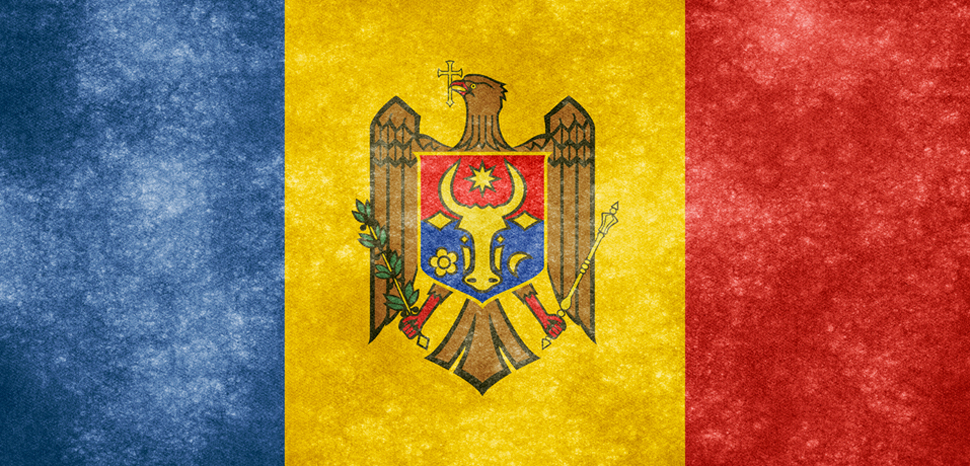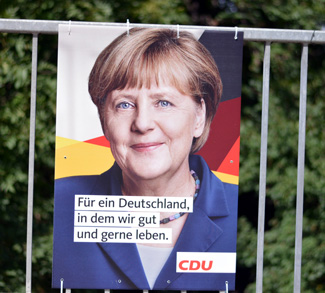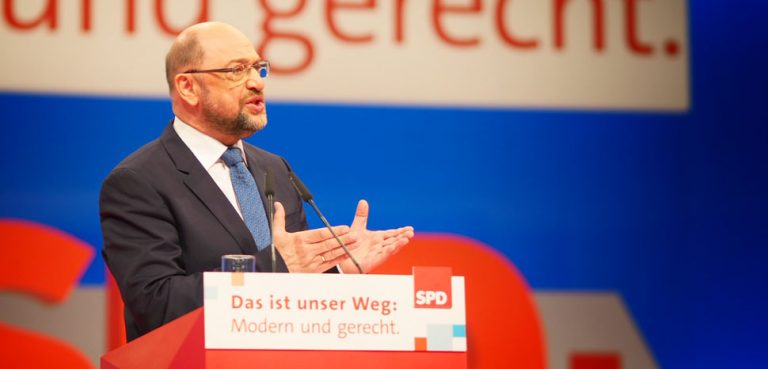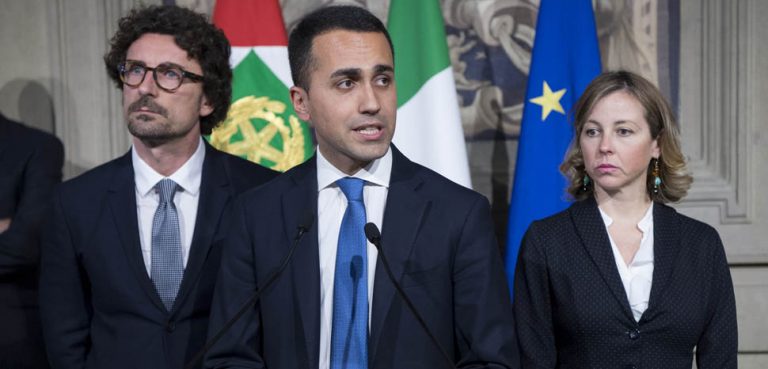Since coming to power in June, the prime minister of the Republic of Moldova (RM), Maia Sandu, has reassured Western governments and institutions that Moldova remains committed to its objectives of improving the country’s domestic situation and increasing European integration. These goals were reiterated during a September 19 speech at the International Republican Institute in Washington DC. PM Sandu’s trip to the US capital occurred not long after a late-July visit to Brussels, where she signed three agreements with the European Union (EU) via which the Southeastern European nation will receive USD45 million in aid.
Apart from the self-evident importance of the financial assistance, the PM’s recent trips, meetings and agreements highlight the Moldovan government’s focus on improving ties with Western governments and organizations, particularly the EU.
Chisinau and Brussels: Notable Agreements
Relations between Chisinau and Brussels currently operate under the umbrella of the European Neighborhood Policy. One of its pillars is the Eastern Partnership (EaP), which seeks to increase ties between the EU and six states: Armenia, Azerbaijan, Belarus, Georgia, Moldova and Ukraine. Founded in 2009, the Partnership seeks to build “a common area of shared democracy, prosperity, stability and increased cooperation,” between the EU and the EaP states.
The EU and EaP member states have identified 20 topics (known as the “Eastern Partnership 20 key deliverables for 2020”) that they can focus on in order to improve the internal situation of EaP countries. According to the European Commission, these can be cataloged in four categories: stronger economy (economic development and market opportunities); stronger governance (strengthening institutions and good governance); stronger connectivity (connectivity, energy efficiency, environment and climate change); stronger society (mobility and people-to-people contacts). Moreover, “in a wider context, the EaP also supports delivery on key global policy goals set by the UN 2030 Sustainable Development Goals and the Paris Agreement on Climate Change.”
Regarding bilateral relations, Chisinau and Brussels have signed important agreements, like the Partnership and Cooperate Agreement (1994), the EU-Moldova Action Plan (2005) and an Association Agreement (2014), which includes the Deep and Comprehensive Free Trade Agreement .
Moldova’s membership to the EU is still a distant objective, given the country’s numerous challenges, including its separatist problem, namely the Transnistrian region, but the short-term objective of the Moldovan government and the majority of the citizenry is to achieve closer ties with Europe.
New Government, New Relationship?
The events of the first half of 2019 in Moldova – namely the inconclusive February elections and the alliance between ACUM and Socialist parties in June, which brought PM Sandu to power – caused a sort of “soft reset” of Chisinau-Brussels relations.
Indeed, the fifth EU-Moldova Association Council held in Brussels on September 30 welcomed the government’s “efforts to combat corruption in an effective way and to guarantee the independence of the judiciary and prosecution services” To encourage these reforms, the EU resumed 14.54 million euro funding in July and expressed its readiness to disburse the first installment of the macro-financial assistance in October 2019, which was postponed because of the delay in reforms of the previous government. A joint press statement made after the council’s decision positively states that “following the change of government in June 2019, Moldova has moved forward resolutely with the implementation of key reforms to address the earlier deterioration of democratic standards and the rule of law, in order to allow citizens to fully benefit from the EU-Moldova Association Agreement.” This is an important declaration of international support for PM Sandu and her agenda.
These positive signals from Brussels were reinforced by the High Representative/Vice President of the European Commission Federica Mogherini during her visit to Moldova on October 3, 2019. HR/VP Mogherini emphasized that “the EU already resumed budget support payments, signed several financing agreements, mobilized high-level expertise to the government, and plans to release the first tranche of Macro-Financial Assistance over the coming weeks.”
Like the September 30 declaration, the newest financial donation (USD26 million for economic development, USD9 million for establishing the rule of law, and USD10 million for implementing an Association Agreement) can be interpreted as the European Union’s approval of PM Sandu’s ambitious agenda, which includes vast governmental and judicial reforms and combating the country’s problem with corruption. For example, Chisinau has adopted a new law regarding the election of the new prosecutor general, who is expected to reinforce the investigation of the infamous USD1 billion bank theft.
What Has Been Accomplished?
The EU has achieved meaningful successes under the umbrella of the EaP and Association Agreement when it comes to upgrading infrastructure throughout Moldova. Case in point, Brussels reports that “public transport has been improved in Chişinău and Bălți with modern trolley buses,” and “biomass heating systems have been installed in more than 225 schools, kindergartens, community centers and village halls.” Moldova was also the first EaP country to sign a visa liberalization agreement with the EU, an important development to promote people-to-people interactions. Moreover, due to these agreements, the EU is now Moldova’s biggest trade partner. “Around 70% of its exports are sent to the EU, followed by Russia (8%) and Belarus (3%),” but “the EU’s trade with Moldova accounts for 0.1% of its overall trade. Moldova ranks 61st among the EU’s trade partners, with a total turnover of €4.6 billion in 2018, an increase of about 40% since 2015” the European Commission explains.
In mid-May, the EaP celebrated its 10th anniversary with a high-level meeting of the six foreign affairs ministers and senior EU leaders in Brussels. The meeting ended without a joint declaration (apparently due to Azerbaijan being dissatisfied that the final draft did not mention territorial integrity), but EU leaders were positive when they talked about the initiative’s past, present, and future. “In these ten years, we have shown what a partnership with the European Union is all about: positive change in the lives of our people, particularly the young ones”, said HR/VP Mogherini. “We made it easier to travel to the EU, increased trading opportunities for businesses, and increased mobility for academics and students,” she added. Romania’s Minister of Foreign Affairs, Teodor Melescanu, shared Mogherini’s optimism, as he stated at said meeting that the EaP’s 10th anniversary “represents a joint effort, which has reached maturity, that offers a solid framework of cooperation and that supports the processes of modernization and transformation in the eastern neighborhood.”
When asked by one of the authors of this commentary about the EaP during her September appearance at IRI, Prime Minister Sandu acknowledged that Moldova “misbehaved” during the initial years of the EaP, which prevented the country from fully profiting from this initiative – anecdotally, the establishment of the EaP and Moldova’s Twitter Revolution occurred the same year – but things were turning around now for the better, and the Partnership remains an important tool for her country. In an interview with the authors of this commentary, Veaceslav Pituscan, former Moldovan diplomat, currently the vice president of Moldova Foundation and a Distinguished Fellow of Georgia Tech, explained that “Moldova’s leaders elected after Moldova’s ‘Twitter Revolution’ did not rise to their historical role and betrayed Moldovan’s citizens’ trust. But Moldova’s society demonstrated again its joie de vivre and, with the help of international partners, managed to oust an unbeatable oligarchic regime that took over the state institutions.”
Final Thoughts
The Republic of Moldova will hold municipal elections on October 20, and this will be a critical test for PM Sandu as it will demonstrate how much support her party has among the general population.
The results of the elections will likely influence the future of PM Sandu’s ambitious agenda. Obviously, the Moldovan government’s principal foreign policy objective is to continue regaining the trust of the European Union, but domestic politics still matter.
As Brussels and Chisinau celebrate a decade of the EaP, this is an ideal time to discuss whether the initiative has in fact helped Moldova. Generally speaking, the answer is: yes. Moldova has benefited from a visa-free and free-trade regime, improvements in infrastructure, connectivity, and Moldovans living abroad are encouraged to return to the country. Nevertheless, corruption and a lack of good governance and transparency continue to be problems.
Moreover, Brussels has maintained a supportive disposition towards Moldova after a rocky first half of 2019. The Association Council held at the end of September is, thus, a crucial important sign of support from Brussels for this new Moldovan government. Case in point, the EU stated that it welcomes the “commitment of the new [Moldovan] government to pursue decisively an ambitious reform agenda based on the effective implementation of the Association Agreement, including the Deep and Comprehensive Free Trade Area (AA/DCFTA), focusing on the depoliticisation and strengthened independence of state institutions and on improving the living conditions of citizens.”
During her remarks at the International Republican Institute, Prime Minister Sandu stated that her government’s objective is membership to the European Union, and the Eastern Partnership and Association Agreement are necessary steps that need to be taken towards achieving that objective. This is a respectable goal, but there are many challenges in Moldova that need to be addressed (including the Transnistria issue) before EU membership can be seriously discussed.
Ultimately, Moldova’s new leaders, and Moldovan citizens in general, deserve “support from the EU and other strategic partners who want Moldova to succeed,” Mr. Pituscan argues. If the events of June 2019 in fact mark a new era for Moldova, tools like the Eastern Partnership should be actively capitalized upon by Chisinau in order to convince the population, particularly the vitally important youth, that by approaching Europe, tomorrow will be a better day for Moldova.
Wilder Alejandro Sanchez is an analyst who focuses on geopolitical, military, and cybersecurity issues. Follow him on Twitter: @W_Alex_Sanchez.
Lucia Scripcari is a Moldovan citizen and a LLM student at Koç University (Istanbul).
The views expressed in this article are those of the authors alone and do not necessarily reflect those of Geopoliticalmonitor.com or any institutions with which the authors are associated.




